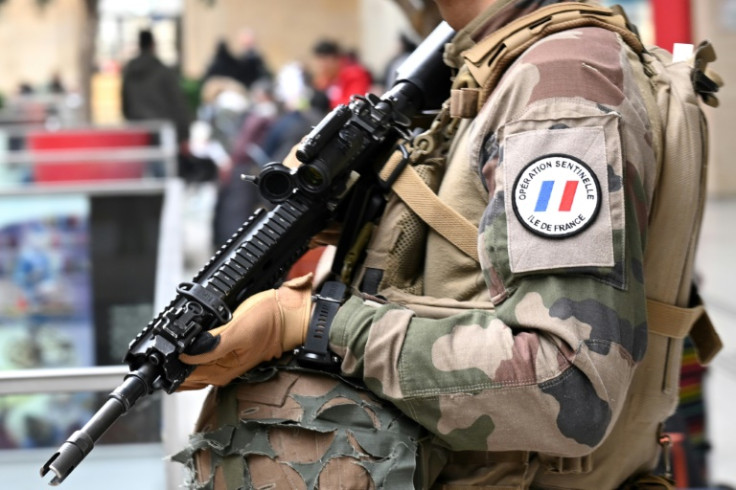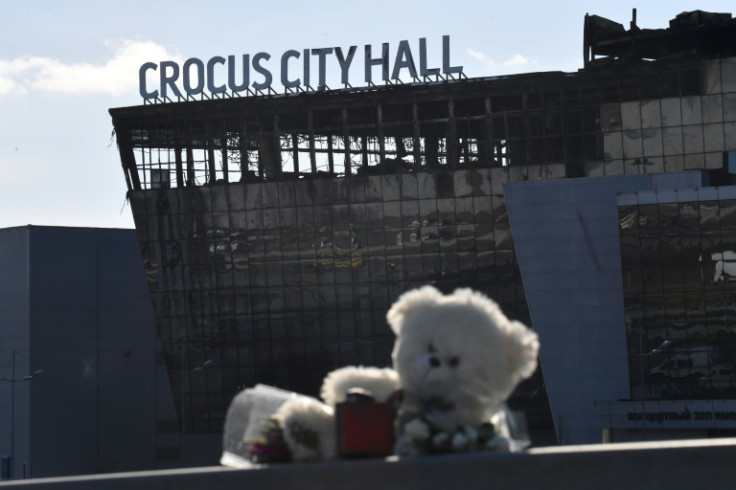Moscow Attack Puts Spotlight On IS Threat To Western Europe

Friday's attack on a Moscow concert hall is exacerbating worries that similar acts could hit targets in western Europe which is hosting exceptionally high-profile sports events this summer, analysts say.
Germany is the site of the Euro 2024 football championship in June and July, which is followed by the Summer Olympic Games in Paris drawing hundreds of thousands of visitors to the French capital.
The Moscow attack killing 137 people, attributed to the Afghan branch of the Islamic State (IS) group known as ISKP, has brought the risk of an Islamist-motivated attack to the centre of attention which has been focused recently on the conflicts in Ukraine and Gaza.
But authorities, experts say, have not forgotten about IS.
"Western Europe is a target and has been for a while," said Tore Hamming, policy and risk advisor at the International Centre for the Study of Radicalisation (ICSR) in London.
"Striking the Olympics in France would undoubtedly be a dream coming true for IS and I am certain that some planning is already taking place," he told AFP.
The large number of Islamic State members based in Turkey with easy access to western Europe, and the release in recent years of a substantial number of terrorism convicts, were making the threat "especially critical", he said.
Earlier this month Celine Berthon, director general at France's domestic intelligence agency DGSI, told the Senate that terrorist threats had been on the rise "for more than a year now".
Radical Islamists -- who are "experienced, unfortunately", she said -- can count on a youthful following with a high level of online activity.
Their recruitment is facilitated by the fallout from the conflict in Gaza, which has led to a polarisation of opinion on social media, with anti-Semitic posts and condemnation of Western governments on the rise.
The Mideast war is "ramping up Islamist propaganda from Al-Qaeda, from IS, from Hamas, from Hezbollah", said Hans-Jakob Schindler, head of the Counter Extremism Project, a non-profit organisation.
"All talk to their sympathizers and say: you got to do something," he told AFP.
The threat potential is not limited to ISKP militants in central Asia -- an estimated 1,500-6,000 people, according to a recent expert report to the UN -- with experts pointing to the relative ease for would-be lone attackers to obtain knives or assault rifles to attack people in a crowd indiscriminately.
Governments know better than to promise citizens absolute safety from attack: Despite questions about possible lapses in Russia's security apparatus, the Moscow attack "underscores the advantage of shock and surprise that terrorists possess against their state opponents", said Bruce Hoffman, jihadism expert at the Council on Foreign Relations, an independent think tank.
The attack in Moscow followed warnings to Russia by the United States of a possible attack.
"Terrorists can conceivably attack anywhere, at any time of their choosing, using whatever tactics and weapons they possess," he said.
ISKP's actions over recent years include attacks in Kerman, Iran, killing 90 people in early January, on an Italian Catholic church in Istanbul a few weeks later and a hotel in Kabul frequented by Chinese nationals in 2022.
Experts said Europe has no reason to be complacent. Since 2020, European authorities, notably in Germany and Austria, have dismantled a number of networks linked to ISKP.
While the number of foiled plots underpins the idea that potential attackers may succeed in western Europe in the near future, Schindler pointed to the region's efficient cooperation at mass events like the Olympics and the European football cup as a factor of reassurance.
"There is an established international cooperation mechanism and that works quite well," he said.


© Copyright AFP 2024. All rights reserved.





















